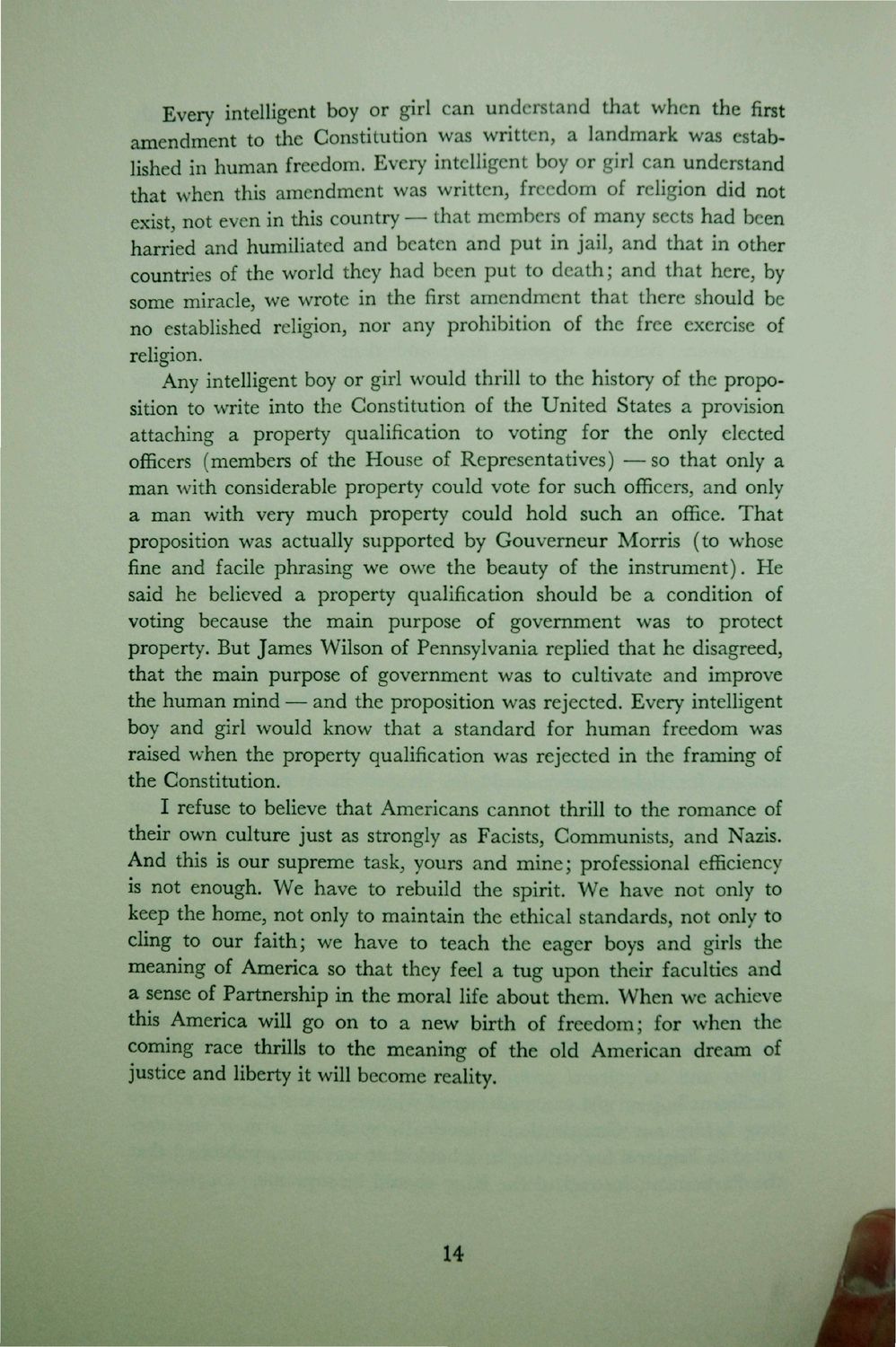| |
| |
Caption: Dedication - Home Economics - Challenge of Home Economics
This is a reduced-resolution page image for fast online browsing.

EXTRACTED TEXT FROM PAGE:
Every intelligent boy or girl can understand that when the first amendment to the Constitution was written, a landmark was established in human freedom. Every intelligent boy or girl can understand that when this amendment was written, freedom of religion did not exist, not even in this country— that members of many sects had been harried and humiliated and beaten and put in jail, and that in other countries of the world they had been put to death; and that here, by some miracle, we wrote in the first amendment that there should be no established religion, nor any prohibition of the free exercise of religion. Any intelligent boy or girl would thrill to the history of the proposition to write into the Constitution of the United States a provision attaching a property qualification to voting for the only elected officers (members of the House of Representatives) —so that only a man with considerable property could vote for such officers, and only a man with very much property could hold such an office. That proposition was actually supported by Gouverneur Morris (to whose fine and facile phrasing we owe the beauty of the instrument). He said he believed a property qualification should be a condition of voting because the main purpose of government was to protect property. But James Wilson of Pennsylvania replied that he disagreed, that the main purpose of government was to cultivate and improve the human mind — and the proposition was rejected. Every intelligent boy and girl would know that a standard for human freedom was raised when the property qualification was rejected in the framing of the Constitution. I refuse to believe that Americans cannot thrill to the romance of their own culture just as strongly as Facists, Communists, and Nazis. And this is our supreme task, yours and mine; professional efficiency is not enough. We have to rebuild the spirit. We have not only to keep the home, not only to maintain the ethical standards, not only to cling to our faith; we have to teach the eager boys and girls the meaning of America so that they feel a tug upon their faculties and a sense of Partnership in the moral life about them. When we achieve this America will go on to a new birth of freedom; for when the coming race thrills to the meaning of the old American dream of justice and liberty it will become reality. 14
| |